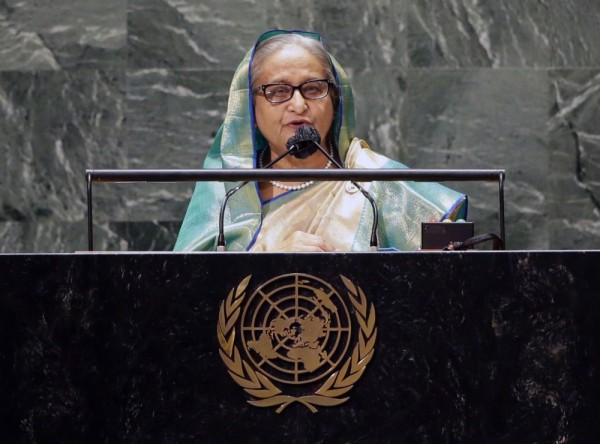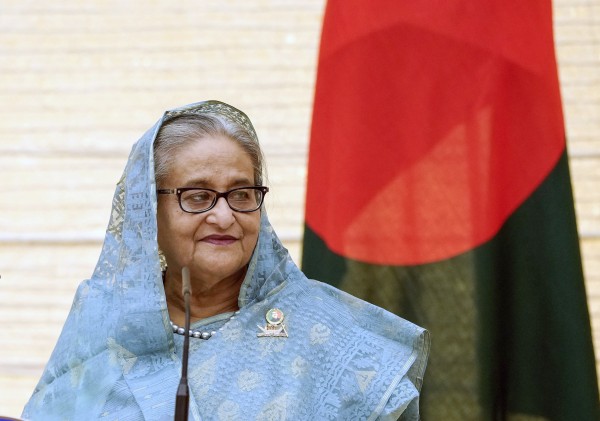The International Press Institute (IPI) yesterday completed its press freedom mission to Bangladesh, where IPI delegates met with high-level members of the country’s government and opposition as well as numerous journalists and media institution representatives, to discuss concerns related to press freedom and journalistic practices in the country.
“We are here to show our continued support for our members and the media in general in Bangladesh,” IPI Executive Director Alison Bethel McKenzie told journalists at Dhaka’s Press Club during the mission. The Press Club was founded in 1954 and today has over 800 members.
Mission delegates, who visited the Bangladesh capital Dhaka from Feb. 25 to 29, 2012, urged authorities to address the impunity related to attacks on, and killings of, journalists in the past 15 years, and to improve the legal framework affecting the media in the country.
According to IPI Board Member and Chairman of the IPI Bangladesh National Committee Monjurul Ahsan Bulbul, who joined the IPI mission, at least 24 journalists have been killed in Bangladesh since 1998. In not a single case have the perpetrators been brought to justice.
Most recently, on Feb. 11, Sagar Sarwar, news editor of the private TV station Massranga and his wife Mehrun Runi, senior reporter with ATN Bangla television, were stabbed to death in their home in the Bangladeshi capital of Dhaka.
Police said they were investigating the crime but had yet to identify the perpetrators and determine the motive behind the killing. Journalists in Bangladesh have been vehemently calling for justice and an end to the violence. On Feb. 27, IPI members in the country joined hundreds of journalists in a one-hour protest in front of the National Press Club in Dhaka to call for justice for their two colleagues. Similar protests also took place across Bangladesh.
Journalists, who also held a countrywide mass hunger strike on March 1 from 10 am to 4 pm, have called for a grand rally in Dhaka on March 18 to press for the arrest of the killers.
In a meeting with Bangladesh Prime Minister Sheikh Hasina on Tuesday, IPI stressed the importance of prosecuting the killers of Sagar Sarwar and Mehrun Runi, as well as those behind the murders of the other 22 journalists killed between 1998 and 2010. Hasina stated that she was extremely saddened by the brutal murder of the journalists and had already called for swift investigations. Referring to earlier killings, the prime minister said that a great deal of time had passed, which made it difficult to carry out new investigations.
IPI delegates welcomed the current administration’s decision to repeal the Emergency Powers Rules (2007), which allowed police to arrest journalists in their newsrooms without a court warrant, as an important step toward greater press freedom and respect for the rule of law.
“We are very pleased at the advancements that have been made in Bangladesh in terms of press freedom and are looking forward to continuing our work in the country,” IPI’s executive director said. “We do however remain concerned about the recent murder of Sagar Sarwar and Mehrun Runi and the failure, after ten years, to capture any of those who have committed crimes against the nation’s media.”
Stating that her administration was committed to a free press in Bangladesh, Prime Minister Hasina suggested that a lack of professionalism may at times have been the cause of attacks against journalists. “There should be freedom of the press but side by side with responsibility,” the prime minister told IPI.
The IPI mission delegates also met with Information Minister Abul Kalam Azad, and Chief Information Commissioner Ambassador Zamir to look at the ongoing implementation of the Right to Information Act (2009) and the urgent need to adopt a broadcasting policy that would allow the setting up of an independent body in charge of regulating the airwaves, assigning licenses, and supervising the broadcasting sector.
Bethel McKenzie noted the importance of ensuring consultation with the media sector throughout the process of drafting the broadcasting law. IPI offered to provide advice to ensure that laws affecting broadcasters are in line with international standards of press freedom and ensure broad access to information from different sources.
Impunity was also discussed in a meeting with Barrister Shafique Ahmed, Minister of Law & Parliamentary Affairs, who told IPI that “the government is eager to catch the perpetrators of the latest killing of journalists […] because we want to get out of this culture of impunity.”
Begum Khaleda Zia, leader of the opposition Bangladesh Nationalist Party (BNP), also told IPI that her party stands for press freedom.
A seminar on “Major Threats to Quality Journalism: Global and Bangladesh Context” organised by IPI’s Bangladesh National Committee and Dhaka’s Journalism Training & Research Initiative (JATRI) during the IPI mission saw the participation of professional journalists.
Commenting on the IPI mission, IPI Board Member Monjurul Ahsan Bulbul, CEO of Boishakhi private television, noted that “in order to fight attacks, threats, killings and harassment journalists need to be well-prepared through training on ethical, responsible and professional journalism, as well as be united. We welcome the IPI mission to Bangladesh and call on IPI to support efforts by journalists in the country to improve their professional skills.”


